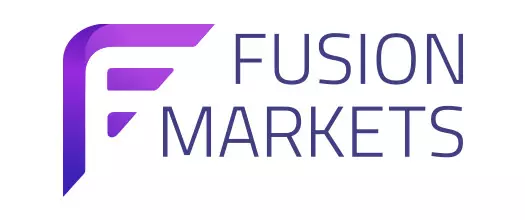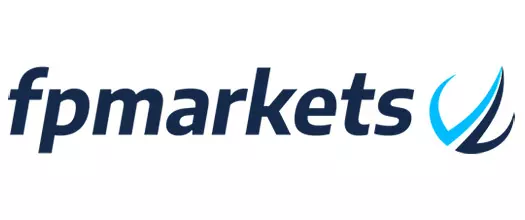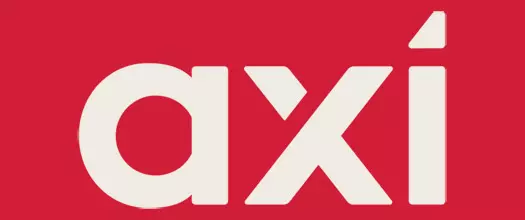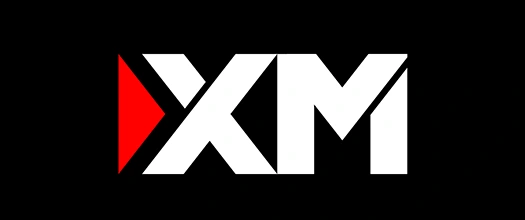Brent crude oil makes up more than half of the crude oil traded globally and it serves as the benchmark for crude oil pricing. Due to its constant liquidity, market participation, and exposure, it is among the commodities with the greatest trading volume. Our team of expert traders tested several regulated and trustworthy Brent crude oil trading brokers and compiled a toplist with the best among them. Every platform allowing CFDs on Brent crude oil received a quality score based on several factors, including Trustpilot rating, regulation, fees and commissions, available trading platforms, customer service and more.
 Fusion Markets74-89% of retail's CFD accounts lose money
Fusion Markets74-89% of retail's CFD accounts lose money FP Markets73.85% of retail investor accounts lose money
FP Markets73.85% of retail investor accounts lose money Global Prime74-89% of retail CFD accounts lose money
Global Prime74-89% of retail CFD accounts lose money Pepperstone75.5% of retail investor accounts lose money
Pepperstone75.5% of retail investor accounts lose money AxiThe vast majority of retail client accounts lose money
AxiThe vast majority of retail client accounts lose money XM Group72.82% of retail investor accounts lose money
XM Group72.82% of retail investor accounts lose money
Brent Oil Trading Brokers
Brent crude is the flagship of all oils, and it comes as no surprise that the brokers that allow trading it are not far and few between. Selecting the best broker might not be a walk in the park, especially considering how vast the choice of Brent oil trading platforms is. Before they put their trust in one of the platforms, traders should make sure that the broker will let them play other markets as well. Additionally, they should check whether the broker offers the right account type for them and what trading tools and resources they can make use of. The prices per trade, the accepted funding and withdrawal methods, and the available trading platforms are also among the things they should verify that are featured.
- 1. AvaTradeMin Deposit$100Fees$/€/£50 inactivity feeCommissionsDoes not charge a commissionSpread$0.02 over market
$0.01 over market Pro accountsLeverage EU1:10Leverage non-EU1:100CFDs are complex instruments and come with a high risk of losing money rapidly due to leverage. 63% of retail investor accounts lose money when trading CFDs with this provider. You should consider whether you understand how CFDs work and whether you can afford to take the high risk of losing your money.AvaTrade is a global trading brand that is synonymous with premium-quality trading services. The broker is considered to be among the pioneers in the online trading world as AvaTrade is now in its second decade of operation. By joining AvaTrade’s community, traders will be dealing with one of the most tightly regulated brokers as it is authorized to operate in South Africa, Europe, Japan, and Australia, among others.
Alongside MetaTrader4 and MetaTrade5, the broker also offers the proprietary platforms AvaTradeGo and AvaOptions, as well as a range of novel features like AvaProtect in order to ensure that its users will be perfectly content with their experience. The industry-leading platforms are cut out for professional traders and total novices, which also applies to the featured account types that include Islamic, professional, retail, and MAM.
With approximately 1,000 instruments available, AvaTrade is a go-to platform for traders who are interested in Forex, stocks, cryptocurrencies, indices, and commodities. The broker undoubtedly leads the way when it comes to trading commodities as its users can go for CFDs on agriculture, precious metals, and energies.
AvaTrade users who decide to go for energy products trading will benefit from competitive spreads, professional customer service, leveraged trading of up to 1:10, and will have the opportunity to trade Brent oil no matter the time or the place using AvaTradeGo. Along with Brent oil, the broker also facilitates trading heating oil, natural gas, gasoline, and crude oil.
- 2. FBSMin Deposit$5, the min deposit may vary based on payment methodFeesDeposits and withdrawals are commission-freeCommissionsNo commission for trading Forex, indices, and energies
A commission is only charged when trading cryptocurrenciesSpreadMinimum spread 0.00
Average spread 5 pointsLeverage EU1:10Leverage non-EU1:200Risk warning: ᏟᖴᎠs are complex instruments and come with a high risk of losing money rapidly due to leverage. 61.29% of retail investor accounts lose money when trading ᏟᖴᎠs with this provider. You should consider whether you understand how ᏟᖴᎠs work and whether you can afford to take the high risk of losing your money.Founded in 2009, FBS is a broker with a presence in multiple jurisdictions, thanks to the authorization the broker has from the Cyprus Securities and Exchange Commission and the IFSC. FBS is a reliable broker that offers award-winning services as the accolades it has collected since its foundation are more than 60.
Picking an account type that fulfills traders’ requirements will be a breeze as the broker gives them a choice from a number of options, including standard, micro, cent, crypto, zero spread, and ECN. FBS’s product portfolio contains a number of sought-after instruments, including stocks, indices, cryptocurrencies, metals, Forex, and energies, including Brent oil, natural gas, and WTI light crude oil.
While picking the account type they will use, traders should pay close attention to the markets they will be allowed to gain exposure to as well as the maximum leverage they can benefit from, as certain limitations might apply. European traders, for example, can use maximum leverage of 1:10 for Brent crude oil and other energies.
The broker has removed the complexities from the deposits and withdrawals, and FBS users can manage their funds through Neteller, Visa, Skrill, STICPAY, Perfect Money, and bank transfer, among others. Traders who want to enjoy the ultimate freedom of managing their funds or accessing all their data involved in their Brent oil trading experience no matter the place can make use of the mobile personal area. The smart apps make it possible to customize their accounts, control their finances, and use a dashboard with just a few taps.
- 3. XM GroupMin Deposit$5 for all three account typesFees$5 monthly dormant fee
No fees on deposits and withdrawals
Wire transfer payments are only covered if the sum is more than $200CommissionsNo commission for standard and micro accounts
A commission is only charged on XM zero accountsSpread0.03 (average spread)Leverage EU1:10Leverage non-EU1:100Risk Warning: CFDs are complex instruments and come with a high risk of losing money rapidly due to leverage. 74.12% of retail investor accounts lose money when trading CFDs with this provider. You should consider whether you understand how CFDs work and whether you can afford to take the high risk of losing your money. Please consider our Risk Disclosure.XM is a broker that started its trading activity back in 2009 and has significantly expanded its global outreach as today, the trading platform is accessible by users from 190 countries and has attracted more than 5 million account holders. Since its foundation, the broker has experienced considerable growth and development and has dozens of accolades which goes to show that XM strives for perfection.
The number of users that choose the trading products XM offers is heavily on the rise, and this comes as no surprise considering how varied the broker’s portfolio is. The broker is working hard to improve the offered services and to ensure that they will resonate with traders and has covered instruments like shares, precious metals, Forex, stocks, equity indices, commodities, and energies, included. In addition to Brent oil, XM users interested in trading energies can also go for WTI oil, natural gas, and London gas oil, among others.
The broker offers some advanced trading solutions and constantly adds new and innovative trading tools. MQL5 trading signals, Forex calculators, and exclusive technical indicators are only some of the tools you will access as an XM user.
The learning center of XM is undoubtedly worth taking a look at as there, those who are making their first steps in trading Brent oil will find videos, webinars, and tutorials, thanks to which they will start off well.
XM’s existing and prospective customers are also provided with live support, and they can get assistance in more than 25 languages no matter the contact channel they pick.
- 4. PepperstoneMin DepositNo min deposit requirementFeesNo inactivity or account keeping feesCommissionsNo commission for standard accounts
1 pip markup on the raw spreadsSpread2 minimum spread
2.27 average spreadLeverage EU1:10Leverage non-EU1:100CFDs are complex instruments and come with a high risk of losing money rapidly due to leverage. 76.3% of retail investor accounts lose money when trading CFDs with this provider. You should consider whether you understand how CFDs work, and whether you can afford to take the high risk of losing your money.Established in 2010 in Melbourne, Pepperstone is a broker that is committed to improving the world of trading. The broker is looking to continue expanding its global outreach and, to this end, has acquired licenses from the Cyprus Securities and Exchange Commission, the Financial Conduct Authority, the Australian Securities and Investments Commission, and the Dubai Financial Services Authority.
The selection of account types goes to reflect the broker’s desire to offer services that are suitable for traders from all experience levels, and it is up to traders to decide whether razor or standard account type is cut out for them.
Pepperstone strives to provide its users with a trading experience of the first water, and to achieve this, the broker has covered a slew of markets, including indices, shares, ETFs, cryptocurrencies, Forex, and commodities, including Brent oil. Other than Brent oil, other energies at the disposal of the brokers’ clients are gasoline, and natural gas. If you decide to start trading commodities with Pepperstone, along with energy, you can go for soft commodities and major metals.
Pepperstone users will enjoy the freedom to trade wherever they go as the platforms the broker offers are accessible on iOS and Android-based devices, as well as on Windows and Mac. To facilitate the decision-making, the broker offers a side-by-side comparison of the featured platforms, including MetaTrader4, MetaTrader5, and cTrader.
Pepperstone is undoubtedly friendly to traders new to the Brent oil market, and the wide selection of education tools can help them get a good start at trading. Traders can reach their full potential thanks to tools like code-free automation, smart trading tools like alarm manager, trade simulator, tick chart terminal, excel RTD, market manager, and a wide variety of indicators.
- 5. AdmiralsMin Deposit$100Fees0,9% for deposits via Skrill
One free withdrawal request per monthCommissionsCommission for trading currencies and metals:- 3.0 for a monthly volume of $10,000,000
- 2.4 for a monthly volume of $10,000,000 - $50,000,000
- 1.8 for a monthly volume of more than $50,000,000
- Zero commission on commodities
Spread0.03 minimum spread
0.04 typical spreadLeverage EU1:10Leverage non-EU1:100Risk warning: Trading Forex (foreign exchange) or CFDs (contracts for difference) on margin carries a high level of risk and may not be suitable for all investors. There is a possibility that you may sustain a loss equal to or greater than your entire investment. Therefore, you should not invest or risk money that you cannot afford to lose. Before using Admiral Markets UK Ltd, Admiral Markets Cyprus Ltd, Admiral Markets AS Jordan Ltd, Admiral Markets Pty Ltd and Admirals SA (PTY) Ltd services, please acknowledge all of the risks associated with trading.Since its foundation in 2001, Admirals is a broker that has continually expanded its outreach, and now accommodates users from hundreds upon hundreds of countries. It comes as no surprise that the broker is a top choice for so many traders, as by joining its community, they can play some of the world’s most popular markets, including indices, Forex, stocks, bonds, EFTs, cryptocurrencies, and commodities. As for the range of featured commodities, traders can go for agriculture, metals, and energies, including Brent oil, WTI oil, and natural gas.
Admirals users can start trading Brent oil for as little as $100, improve their knowledge as they go, and trade any time and anywhere.
Moving funds to and from Admirals is mainly commission-free and quick, and there are multiple options available, including Klarna, Visa, Mastercard, bank transfer, and Skrill, among others. Cashouts are also executed in a timely manner, and depending on the payment processor traders will pick, they might even release their funds on the spot.
The broker is overseen by multiple regulators in the jurisdictions the platform operates in, including the Financial Conduct Authority, Cyprus Securities and Exchange Commission, Jordan Securities Commission, Companies and Intellectual Property Commission, and the Australian Investment and Securities Commission.
The financial security of traders’ funds is of paramount importance for the broker, and while trading with Admirals, users will benefit from the negative balance protection feature and insurance coverage of up to €100,000 or €20,000.
- 6. NSBrokerMin Deposit$500FeesNo deposit fees
2.9% for withdrawals executed through Neteller and SkrillCommissions$8/lotSpreadFloating from 0.04 pips (Brent crude oil)Leverage EU1:10Leverage non-EU1:10RISK WARNING: Trading in Forex and Contracts for Difference (CFDs), which are leveraged products, is highly speculative and involves substantial risk of loss. It is possible to lose all your capital. Your capital is not guaranteed and may go down as well as up. Therefore, Forex and CFDs may not be suitable for all investors. Only invest with money you can afford to lose. So please ensure that you fully understand the risks involved. Seek independent advice if necessary.With a presence of more than 10 years, NSBroker is a Brent oil trading platform that offers reliability, straightforward trading conditions, and top-of-the-line innovative arrangements.
The assets traders will gain exposure to if they join NSBroker’s community include currencies, commodities, precious metals, indices, stocks, and commodities. Energy carriers are also among the supported assets, and as an NSBroker user, you will be given the opportunity to trade Brent and WTI oil. The maximum allowable leverage for both is set at 1:10, and spreads are floating (from 0.04 and 0.12, respectively).
Traders can use all the advanced trading and analysis tools anytime and anywhere as the platform the broker offers is accessible not only on computers but on portable devices as well. If traders have any questions about the devices they can gain exposure to the markets NSBroker has covered, they can address them at all times through live chat, email, or over the phone.
NSBroker’s target audience is not only seasoned traders but total novices too, as the broker offers real and demo accounts. If they prefer, traders can experience the trading environment in a risk-free fashion using the demo account as it will give them access to all five asset classes and more than 100 instruments.
The broker does not underrate the significance of its client’s protection and offers negative balance protection and an investor compensation scheme. Traders can have full confidence that they are dealing with a properly licensed broker as NSBroker is authorized by the Malta Financial Services Authority, MIFID, BaFin, and the ACP, among others.
- 7. Plus500Min Deposit$100Fees
- Overnight funding fee¹
- Currency conversion fee²
- Monthly inactivity fee³
CommissionsDoes not charge a dealing commissionSpread0.04Leverage EU1:10Leverage non-EU1:5077% of retail investor accounts lose money when trading CFDs with this provider. You should consider whether you can afford to take the high risk of losing your money.Plus500 is a well-regulated broker with competitive spreads that offers some of the most frequented Brent oil trading platforms. The broker is available to users from more than 50 countries and boasts a roster of more than 2,800 CFD instruments, which is a sure sign that traders will be perfectly content with their stay. CFDs on: Shares, Forex, indices, cryptocurrencies, ETFs, options, and commodities are all included in the assortment of tradable instruments Plus500 users can pick from.
The broker does not only want to provide its users with a world of opportunities but also to guarantee fast and reliable execution, lightning-fast deposits and withdrawals, real-time quotes, and a number of analytical tools. Traders will gain access to all these features no matter the place, thanks to the high-rated dedicated apps for Android and iOS-run devices.
Judging from the available account types, the services the broker offers are geared toward the needs of traders from various experience levels, and traders can sign up for a standard account, and if they are eligible, they can upgrade it to professional. As for the range of supported commodity CFDs, the broker offers natural gas, and Brent crude oil, among others.
Plus500CY Ltd is authorized & regulated by CySEC (#250/14). The fact that the broker is listed on the London Stock Exchange’s Main Market for Listed Companies also serves to demonstrate that Plus500 is a reliable and trustworthy Brent oil trading platform.
¹Daily overnight fee is calculated with the formula Trade Size * Position Opening Rate * Point Value * Daily Overnight Funding %
The formula for Share CFDs: Trade size * Daily Close Rate * Point Value * Daily Overnight Funding %²Up to 0.7% of the trade’s realised net profit and loss
³$10 per month if you have not logged in for more than 3 months
- 8. Global PrimeMin DepositNo min deposit requirementFeesNo deposit and withdrawal fees
No inactivity feeCommissions$7 for metals, excluding copper
No commission for copper, energies, and soft commoditiesSpread2.24 average spreadLeverage EU1:10Leverage non-EU1:100Trading derivatives is high risk. Losses can exceed your initial investment. You should only trade with money you can afford to lose. Any Information or advice contained on this website is general in nature and has been prepared without taking into account your objectives, financial situation or needs. Past performance of any product described on this website is not a reliable indication of future performance.Offering competitive pricing and low latency, Global Prime is one of the Brent oil brokers more and more traders decide upon. The broker serves traders from more than 190 countries and one of the reasons why the platform enjoys overwhelming popularity is because its users are provided with the means to lower their trading costs.
Global Prime gives its users around-the-clock access to some of the world’s most liquid markets, including shares, bonds, Forex, cryptocurrencies, indices, and commodities. If traders decide to use Global Prime as their commodities broker, they will gain access to more than 18 markets, including metals, soft commodities, and energies, Brent oil included.
As a Global Prime user, you will have the chance to manage your trades more conveniently, faster, and easily even when you are out and about using the powerful iOS and Android apps.
The deposit and withdrawal choices include well-established payment processors like PayPal, Skrill, Neteller, Visa, and Mastercard, among others. In addition to the wide and varied selection of deposit methods, traders can decide between multiple currencies, including AUD, EUR, GBP, JPY, SGD, or USD, and benefit from fee-free deposits and withdrawals.
The broker keeps its users covered if they want to learn how to trade with no worry, as they can make use of the demo account until they understand how the platforms work or put their strategies through their paces.
- 9. AlvexoMin Deposit$500Fees$10 fee after three consecutive months of inactivityCommissionsNo commissionSpread0.03 minimum spread
0.02 spread for ECN accountsLeverage EU1:10Leverage non-EU1:100Trading Contracts for Difference (CFDs) involves a significant risk of loss that may not be suitable for all investors. Before deciding to trade Contracts for Difference (CFDs), you should carefully consider your trading objectives, level of experience and risk appetite. It is possible for you to lose all your invested capital, therefore you should not deposit money that you cannot afford to lose. Please ensure that you fully understand the risks and take appropriate care to manage the risk. Please ensure you read our Terms and Conditions and Risk Disclosure Statement before making any operation on our trading platform.Alvexo is a newcomer to the online trading scene, as the broker started operating in 2014, but this is not to say that traders should immediately write off the platform. In spite of its short-term presence in the online trading world, the broker already has multiple accolades, including for best mobile trading app and trading platform.
Alvexo offers a wide assortment of instruments, including currencies, shares, indices, cryptocurrencies, and commodities. More than 15 commodities can be found under the respective section, with Brent oil, natural gas, and Sweet Crude oil being among the options. If traders want to diversify their portfolio by adding more commodities to it, they will have a choice of precious metals and softs too. The broker is undoubtedly looking to provide more personalized services, and to achieve this has introduced four account types, including classic, gold, prime, and elite.
Depending on their decision, traders will benefit from leverage of up to 1:300, stop-out level of up to 15%, different spreads, and minimum deal size. The financial instruments they will be given access to will also vary based on the preferred account type. To improve traders’ chances of making intelligent and fast trading decisions, the broker offers webinars, daily news, analysis, and daily signals.
The broker’s customer-oriented focus is what makes Alvexo stand out from the crowd, and its ever-expanding customer base goes to show that the broker is dedicated to offering premium-quality services to new and returning users. The broker has the authorization of the Financial Services Authority and does not compromise in terms of the security of funds. To ensure that its users can trade with the peace of mind that their funds and sensitive information are handled securely, the broker relies on up-to-the-minute security measures.
- 10. GO MarketsMin Deposit$200FeesNo deposit and withdrawal feesCommissionsNo commissionSpread0.3Leverage EU1:10Leverage non-EU1:500Risk Warning: CFDs are complex instruments and come with a high risk of losing money rapidly due to leverage. 58% of retail investor accounts lose money when trading CFDs with GO Markets Ltd. You should consider whether you understand how CFDs work and whether you can afford to take the high risk of losing your money.
Widely recognized as Australia’s first MT4 broker, GO Markets is also on the list of the worthwhile platforms that offer Brent oil trading. The broker has been accommodating traders since 2006, and GO Markets’ aim has always been to remain their first choice for CFD trading.
To attain this goal, the broker allows its users to access more than 600 products through a single account. Traders can go to the next level no matter the asset class they will settle on, and they can go up a gear no matter if they want to trade Forex, shares, indices, metals, or commodities. The range of commodities traders will gain access to is indeed wide, and in addition to Brent oil, they can also go for WTI oil, gold, and silver, no matter if they will pick MT4 or MT5 as their trading platform.
The broker is committed to taking the trading experience of its users beyond their expectations, and the wide variety of available tools proves this beyond doubt. Autochartist is a pattern recognition tool that will highlight opportunities and will send analysis and alerts. Traders will also get intelligent support for their decisions from the trading center. Myfxbook is another advanced trading tool, thanks to which GO Markets’ users can trade the market automatically.
The multi-award-winning broker does not play down the security of its users, and guarantees that the services it offers are compliant with all standards. As for its authorization, GO Markets has a seal of approval issued by the Financial Services Commission.
Also known as Brent blend, Brent crude oil is primarily drilled from the oilfields in the North Sea and is the most traded of the three primary benchmarks. Each region’s oil is slightly different from the oil, which is found in the other underground reserves around the world, and because of the varying ease of transportation and their use in different industries, their value also differs.
The three main benchmarks that are used as a reference for the price of crude oil are Brent oil, WTI oil, and Dubai oil. Interestingly, Brent oil covers well over 60% of all oil contracts, and it is classified as light and sweet, which makes it suitable for the production of diesel and gasoline. Unlike WTI oil which is mainly extracted from land wells, Brent oil is easier to ship as it is already at sea.
How Brent Oil Trading Works for Traders and Brokers
Brent crude is one of the fundamental sources of energy for the world’s economy, and oil products are integrated into almost all aspects of our lives. The crude oil market is all about investors’ expectations about the direction in which the supply and demand of the commodity will change, and consumer and investor sentiment have a major impact on its price.
For beginners, oil trading involves buying and selling different types of oil, Brent crude included, or oil-related assets for the purpose of making a profit. The high market volatility is what makes it so well-liked by traders as, if they seize the right opportunities, the potential profit might be rather eye-catching.
How to Trade Brent Crude Oil
- Oil CFDs – Trading Brent Crude oil CFDs allows traders to speculate on price fluctuations of the underlying asset without taking ownership of it. The value of these contracts is determined by multiple factors, and before the contracts reach maturity, traders can go long and short of their prices. Unlike Brent oil futures and options, CFDs do not have an expiry date, which is to say that traders can keep a position open as long as they please. What is worth noting about CFDs, however, is that overnight financing fees apply. Another thing to keep in mind about Brent oil CFDs is that they are traded with leverage, with the potential for both larger profits and losses being equally magnified.
- Oil futures – these are standardized agreements according to which the commodity will be exchanged at a future date at a preset price. When the point of expiry of the contract comes, it can be settled or rolled over to another closing date. The contract settlement can happen either physically or in cash. It is important to note that futures are used to price the other oil markets, which is to say that when buying the commodity using the other means, you will still get exposure to Brent oil futures.
- Oil ETFs – exchange-traded funds are one of the most preferred financial instruments traders rely on when they want to get exposure to the oil market. These are baskets of commodities, stocks, or other assets that pool the money of all investors. Then, a benchmark is employed in order to measure up their performance. In most cases, these are based on an index or industry and track commodities, currencies, shares, or bonds, among others.
- Oil spots – in contrast to futures, spot prices represent the current cost of selling or buying the commodity and not how much this commodity is going to cost at the time when the futures contract expires. These transactions are short-term ones and are settled almost directly. Unlike oil futures, with spot prices, traders should not roll over their positions as they are non-expiring, which is to say that they will be continuously offered. As for the way spot prices are determined, they are normally based upon the two futures contracts with the nearest termination date.
- Oil options – these contracts give the contract holders the opportunity to purchase a commodity, which in our case is Brent oil, at a predetermined price and at a later date. Even though oil options are very similar to futures, with options, there is no commitment to purchase the commodity. Thus, before the option expires, traders can exercise it or attempt to find a more advantageous price on the open market.
- Oil stocks – getting exposure to Brent oil markets can also be done through relevant stocks. Thus, traders can focus on companies that transport and store oil, such that refine it into a finished product, or companies that explore and produce the energy sources.
Reasons for Brent Oil Price Fluctuations
Brent oil’s price continues to zigzag mainly because of geopolitical and economic factors. Its liquidity is always high, and traders should also keep in mind that oil prices are highly volatile.
Thus, its price will go down whenever individuals’ spending capacity and the demand for energy is limited, which happens when the economy slumps. Its price is also highly susceptible to geopolitical events, and such events also send shake waves through the market. Global health crises, political shifts, and weather patterns are only some of the shock factors that can affect the market.
Its price might also be driven by shortfalls in supply, as, at the end of 2021, when concerns about the disrupted supply chains lifted crude prices. Alternative fuel developments, shipping availability, and freights, together with the constantly growing world population, can also affect the price.
The role of the Organization of the Petroleum Exporting Countries (OPEC) should also be considered, and as traders might already know, it has a sway over oil supplies, production rates, and global oil prices.









